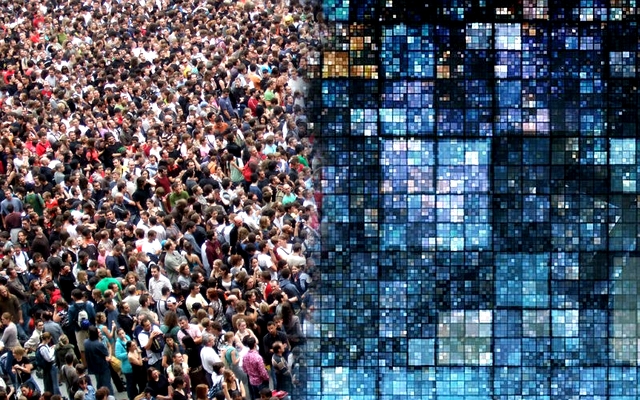Big data is transforming every industry, from health and education, to farming and energy

Big data is already making a big impact all over the world. Large corporations, world organizations, and governments have hopped aboard the big data bandwagon, hoping to utilize new sources of data to improve operations and increase productivity among many other reasons.
It's easy to see from the latest technology news how such massive organizations can benefit from big data considering their available resources and history of using the technology. Finding ways big data is impacting life outside of large, urban areas may seem a little more difficult.
However, big data is already making inroads into rural and suburban communities with promising results.
Farming
Big data has the chance to totally revolutionize farming as we know it. While farming has always sought to use new technology to improve crop output, big data is helping farmers take the next big leap into providing food for a growing population.
In this new age, tractors come equipped with sensors that work to collect data on seeding rates, crop yields, ground conditions, and other factors that prove vital in day-to-day farming. The benefits that could be gained from this newly gathered data are intriguing. From the collected information, farmers and seed companies hope to produce more crops while working on the same amount of land.
Combining data from fields and weather patterns may help farmers prepare for extreme conditions which might otherwise damage crops. Big data from genomic analysis can also help scientists engineer crops that are drought-resistant.
Education
Large universities already know about the benefits of big data, but now the same advantages are trickling into smaller schools at the elementary level. Standardized tests have always been used as a way to measure student performance, but now schools can use those tests and other assignments to gather even more data on their students. From that data, teachers and administrators can determine patterns and chart individual performances that will help them tailor the ways that they teach their students. In this way, students will get the help they need much more quickly by having their own individual action plan made by teachers.
Health
What is available to many large hospitals across the nation is now a possibility for smaller hospitals, clinics, and doctors’ offices. Many of the advances from big data are being used for the treatment and recovery of patients. Doctors are now getting access to vital patient records through mobile technology such as smartphones and tablets.
That same technology can also analyze the symptoms doctors input and calculate viable treatments that would be effective for the patient in need. The data also takes into account all the latest research, meaning any recommended treatments are up-to-date. In essence, these advances using big data allow doctors to make more informed decisions at a quicker rate, meaning more quality for patient care no matter where they may live.
City resources
Smaller cities and towns now have the ability to manage their resources even better now that technologies that analyze big data are more affordable. In one example, some small towns in New Jersey are investing in big data services to look at making trash pick-up operations more efficient.
The idea is to compare automated garbage trucks that use only one operator to older models that require two workers. Other areas are looking at the possibility of using big data predictive analysis to better manage resources for police by identifying parts of the city or town where crimes are most likely to happen.
Energy
Energy conservation is usually on the minds of many city council members, and with big data, smaller cities and towns have the chance to help save on energy costs. In Dubuque, Iowa, the city is placing sensors on utility meters in order to collect data on how people and organizations within the city are using water, gas, and electricity.
The city is also using big data to track how people are moving around the city in their vehicles. This is being done to analyze transportation and traffic problems and see if there are any possible solutions. With a better understanding of these issues, the city may end up saving money by keeping energy costs low.
Big data is not just a big part of life for large cities and metropolitan areas anymore. The spreading technology is starting to make an impact in suburban and rural environments, affecting more lives than ever before. Expect the spread to only increase over time as people become more familiar with how big data can benefit their lives.
Gil Allouche is the vice president of marketing at Qubole
Published under license from ITProPortal.com, a Net Communities Ltd Publication. All rights reserved.
